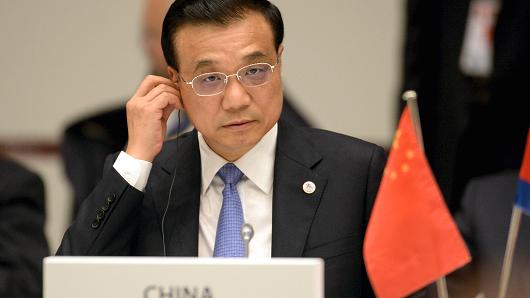Why China’s Premier is making a rare showing in Davos
CNBC.com |

By Ansuya Harjani
In a rarity for Chinese leaders, Premier Li Keqiang will attend the annual meeting of the World Economic Forum (WEF) in Davos later this week, joining 40 other heads of state and government including François Hollande and Angela Merkel.
This is the first time a Chinese leader is attending WEF Davos in five years, according to state-run Xinhua news agency. Li last attended the annual meeting as a vice premier in 2010. "The [Chinese] new president is sufficiently well-established now, so it's appropriate for the prime minister to attend a gathering that sets the agenda for the business year – a year in which the fall in oil prices and the slowing of growth create great uncertainties," Colin Chapman, founder and editor-in-chief of think-tank Australian and ASEAN Strategies, told CNBC.
Also, with China hosting its own "Summer Davos" held in September, top level contact is essential in order to ensure attendance by political and business leaders. The Summer Davos is held annually in either Tianjin or Dalian. The world's movers and shakers will meet in the Swiss Ski resort town over January 21-24, to discuss the main economic and social challenges in the "New Global Context."
Li is expected to deliver a keynote speech on January 21 on the state of China's economy and its "new normal" of slower, yet more sustainable growth.
To-do list
Public relations to deal-making are on the agenda, says Parag Khanna, senior fellow at the New America Foundation. "As the global pendulum swung in recent years towards fearing Chinese assertiveness… China has embarked on a multi-pronged charm offensive, so Davos fits perfectly into that strategy," Khanna, who is also a WEF Young Global Leader, told CNBC.
In addition, Davos presents the perfect opportunity for Chinese leaders to meet corporate leaders and discuss business. "China is more confident at home than outsiders realize. Chinese outbound capital flows are surging as it expands its FDI [foreign direct investment] portfolio across sectors and regions. Davos is perhaps the best one-stop shop for Chinese leaders to entertain potential investments," he said.
In 2014, China's outbound FDI totaled $102.9 billion, piercing through the $100 billion mark for the first time and almost on par with inbound investment at $119.6 billion.
Also on the agenda will be securing funding for the Beijing-backed Asian Infrastructure Investment Bank (AIIB), which is set to begin operations later this year. "It needs to raise capital, if it is to work. Switzerland is a good place to do that, especially with most of the world's top bankers at Davos," said Chapman.
The AIIB is multilateral development bank with the purpose to provide finance to infrastructure projects in the Asia-Pacific region. "They want the world to know that they are thinking development, not solely focused on the South China Sea."